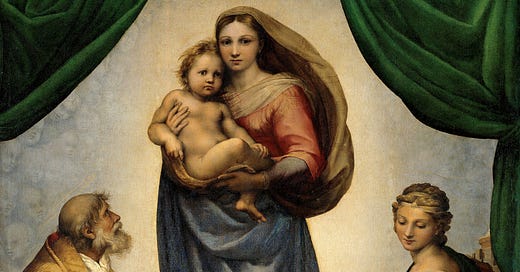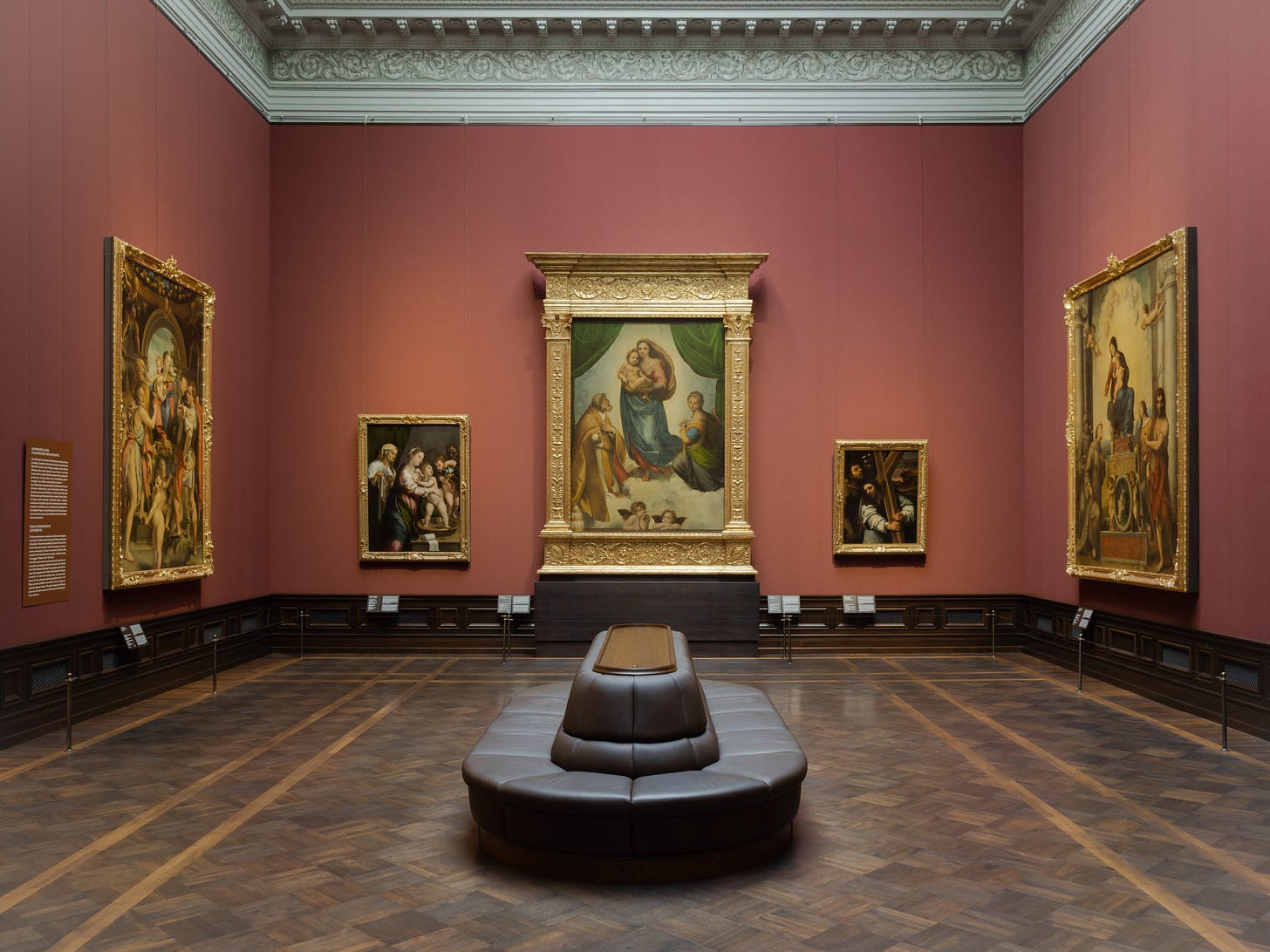Schopenhauer: To the Sistine Madonna
Nowhere else on the internet: Schopenhauer's rare poetry about a Renaissance masterpiece, the Sistine Madonna.
I have spent months searching for this poem and finally found it in the footnotes of an obscure philosophy journal. Schopenhauer’s To the Sistine Madonna is a short poem, eight lines only, about Raphael’s Renaissance masterpiece, the Sistine Madonna. Commissioned by the Pope in 1512, the painting depicts the Virgin Mary with the child Christ in her arms, appearing out of the blue heavens to earthly saints.
In his writings, Schopenhauer seemed to reject the idea of a personal God. He turned a skeptical, pessimistic eye towards Judeo-Christian religion — and towards theism in general. Nonetheless, Raphael’s Sistine Madonna struck him with wonder.
The hazy blues, interrupted by Madonna’s gentle halo, and her otherworldly eyes, break into the dullness of this world and promise the beauty and mystery of the next. Her feminine posture and grace seldom exist anymore, but are worth imitating.
Schopenhauer’s poem focuses on the startled gaze of Christ viewing His creation. It is a beautiful summary of how a Christian ought to walk in the world: “Startled: yet calm and confident hope and / Triumphant glory radiate from his eye, already / Heralding the abiding certainty of salvation.”
She bears him to the world, and startled
He beholds the chaos of its abominations.
The frenzy and fury of its turmoil,
The never-cured folly of its striving,
The never-stilled pain of its distress,—
Startled: yet calm and confident hope and
Triumphant glory radiate from his eye, already
Heralding the abiding certainty of salvation
English translation by E.F.J. Payne.
Sie trägt zur Welt ihn: und er schaut entsetzt
In ihrer Gräu'l chaotische Verwirrung,
In ihres Toberis wilde Raserei,
In ihres Treibens nie geheilte Thorheit,
In ihrer Quaalen nie gestillten Schmerz,—
Entsetzt: doch strahlet Ruh’ und Zuversicht
Und Siegesglanz sein Aug’, verkündigend
Schon der Erlösung ewige Gewißheit.
Schopenhauer’s original German, in Dresden 1815.
Thank you for reading! New posts to build your foundation in Western civilization, out every Monday. —Nicola





